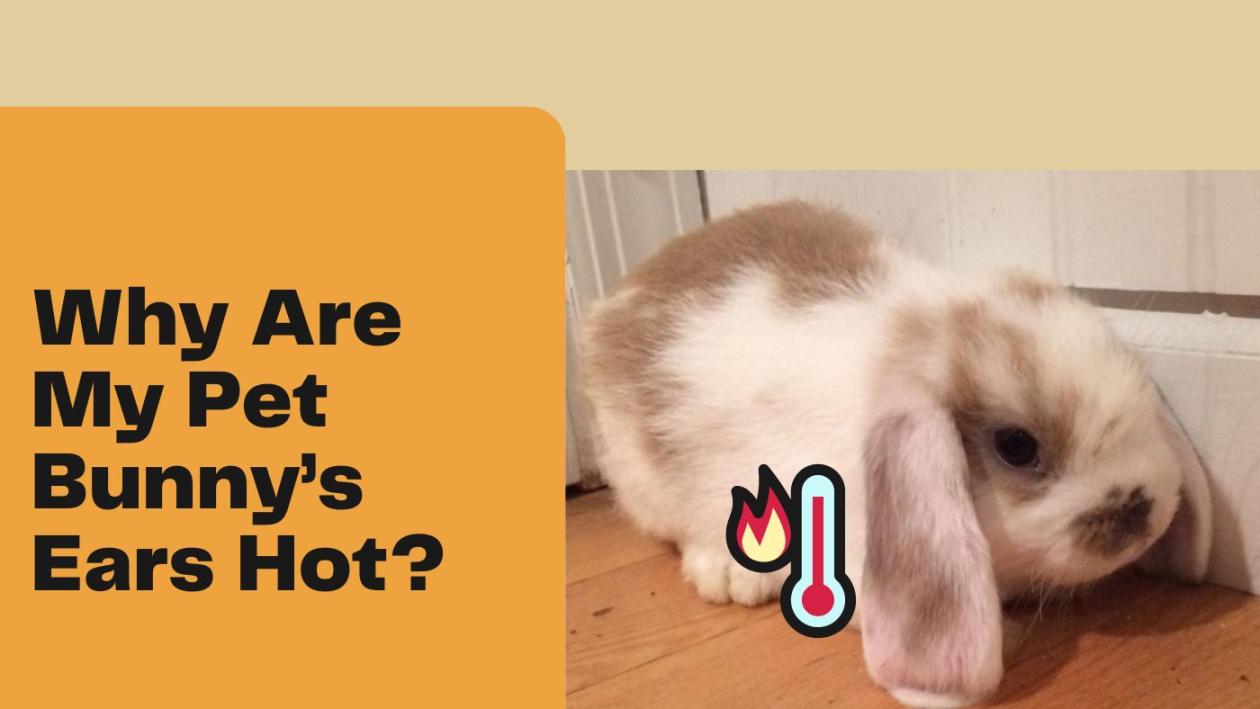What to Do If Rabbit Ears Are Hot?
Rabbits are adorable and gentle creatures that require proper care and attention to ensure their well-being. One aspect of rabbit care that may cause concern for owners is when they notice their rabbit’s ears becoming hot to the touch. While it is normal for a rabbit’s ears to be slightly warm, excessively hot ears may indicate an underlying health issue or discomfort. This article will guide you on what to do if your rabbit’s ears are hot, addressing potential causes and providing appropriate measures for their care.

Possible Causes of Hot Rabbit Ears
There are several reasons why a rabbit’s ears may feel hot to the touch. Understanding these causes can help you identify the issue and take appropriate action:
- Overheating: Rabbits are vulnerable to heat stress, and their ears serve as a temperature regulator. Hot ears can suggest that your rabbit is struggling to cool down due to environmental factors such as high temperatures or inadequate ventilation.
- Fever: Just like humans, rabbits can develop fevers caused by infections or other health conditions. Elevated body temperature can manifest through hot ears.
- Stress or Fear: Rabbits may exhibit signs of stress or fear in response to certain situations, such as loud noises, unfamiliar environments, or the presence of predators. Elevated stress levels can lead to increased blood flow in the ears, resulting in warmth.
- Inflammation or Infection: Rabbit ears are prone to infections, such as ear mites, or inflammation due to allergies or injuries. These conditions can cause redness, swelling, and heat in the ears.
Steps to Take When Rabbit Ears Are Hot
If you notice that your rabbit’s ears feel excessively warm, it is crucial to address the issue promptly. Here are some steps you can take to ensure your rabbit’s well-being:
- Assess the Environment: Check the temperature and humidity levels in your rabbit’s surroundings. Ensure that the ambient temperature does not exceed 75°F (24°C) and that there is proper ventilation to prevent overheating.
- Provide Cooling Measures: Help your rabbit cool down by providing a cooler environment. Place ice packs or frozen water bottles wrapped in a towel near their cage or create shaded areas where they can seek relief from the heat.
- Offer Fresh Water: Frequent access to fresh, cool water is essential for rabbits to stay hydrated and regulate their body temperature. Ensure that their water supply is clean and replenish it regularly.
- Monitor Their Behavior: Observe your rabbit for any signs of distress, such as lethargy, loss of appetite, or rapid breathing. If these symptoms persist or worsen, consult a veterinarian immediately.
- Consult a Veterinarian: If your rabbit’s ears remain hot or if you suspect an underlying health issue, it is advisable to seek professional veterinary care. A veterinarian can perform a thorough examination to determine the cause and provide appropriate treatment.
Frequently Asked Questions (FAQs)
Here are some common questions that rabbit owners often have regarding hot rabbit ears:
Can hot ears indicate a fever in rabbits?
Yes, hot ears can be a sign of fever in rabbits. If your rabbit’s ears feel unusually warm and they exhibit other signs of illness, consulting a veterinarian is recommended.
How can I prevent my rabbit from overheating?
To prevent overheating, ensure that your rabbit has access to a cool environment, provide shade, avoid direct sunlight, and supply fresh, cool water at all times. Additionally, avoid confining your rabbit to spaces with high temperatures or insufficient ventilation.
Are hot ears always a cause for concern?
While a slightly warm sensation is normal for rabbit ears, excessively hot ears can indicate an underlying issue. Monitoring your rabbit’s behavior, overall health, and seeking veterinary advice when in doubt is recommended.
How can I prevent ear infections in rabbits?
Maintaining good hygiene is crucial to preventing ear infections in rabbits. Regularly clean your rabbit’s ears, ensure their living area is clean and free from excessive moisture, and provide a balanced diet to support their immune system. If you suspect an ear infection, consult a veterinarian for proper diagnosis and treatment.
Remember, a rabbit’s health and well-being should be a top priority. If you notice any concerning symptoms or changes in your rabbit’s behavior, it is always best to consult with a knowledgeable veterinarian who can provide proper guidance and care.
Related Articles…
Copyright Notice:
This website utilizes images found online, all copyrights are retained by their original owners. If you would like an image removed, kindly contact us.